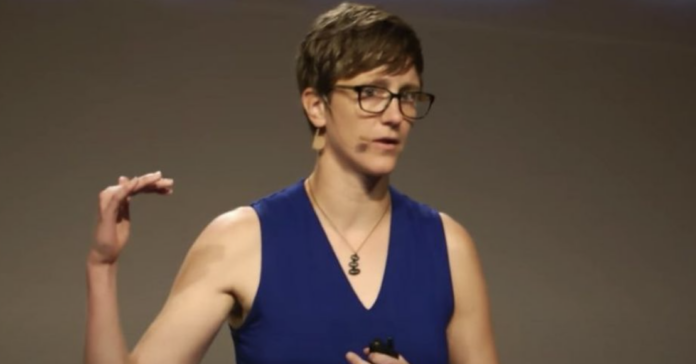According to documents obtained from the Daily Caller News Foundation, members of an advisory committee of the Department of Homeland Security (DHS), on combating “misinformation”, privately called critics of their work, such as those who raised concerns about government censorship of speech, malign actors.
The Cybersecurity Infrastructure and Security Agency’s (CISA) Protecting Critical Infrastructure from Misinformation and Disinformation Subcommittee made recommendations to CISA in June about how to deal with threats to “critical functions of democracy” such as public health, elections, and financial systems. CISA should be able to detect and work with non-governmental sources to dispel misinformation and expand misinformation research, according the subcommittee.
According to emails and meeting notes, the DCNF obtained through a public records request, the subcommittee members expressed their intention to expand CISA’s role over speech. These communications show the views of subcommittee members regarding speech while they were also advising DHS on how to combat misinformation. (RELATED : State Department Helped Fund “Disinformation” Research Group that Blacklisted Conservative News Sites
Along with CISA officials, the subcommittee also included Kate Starbird, University of Washington professor, and Suzanne Spaulding (Center for Strategic and International Studies senior advisor). Vijaya Gadde was a former chief legal officer at Twitter.
DCNF reported previously that the subcommittee tried to recruit left-wing research groups as well as pro-censorship organisations in its efforts against misinformation. Jen Easterly, CISA Director, partially accepted the recommendation of the subcommittee that CISA funds outside research into misinformation or disinformation. Guidelines will be developed in 2023.
The subcommittee discussed a lot about the role CISA should have in regulating information. Subcommittee members wanted to expand CISA’s responsibilities in “malinformation,” which was defined by the committee’s June 2022 Report as “information that may have been based on facts but is used out of context for mislead or harm.”
CISA works with social media companies in order to flag “disinformation concern” as part its larger project to fight mis-, dis– and malinformation (MDM). According to CISA’s website, the focus is on elections and COVID-19.
Starbird, in a May 17, 2022, exchange with Spaulding, Gadde, raised free speech concerns about CISA’s jurisdiction on malinformation. She also appeared to blame bad actors for popular belief that true information falls within the boundaries of democratic discourse. She acknowledged that the committee might be subject to criticism if it cracked down on malinformation, but dismissed this criticism as being in “bad faith.”
Starbird suggested that Starbird establish CISA’s jurisdiction over malinformation, invoking the alleged threats against democracy.
Spaulding was open to the suggestion.
Starbird said that she was open for criticism in good faith and defended her comments about the DCNF.
She characterized the allegations of censorship, however, as “bad faith”.
According to DCNF minutes, Stephen Richer, Maricopa County Recorder, claimed that citizens who filed public records requests to “abuse state resources” were an example of malinformation.
The suggestion was not rejected by the subcommittee.
In closed meeting notes, obtained by DCNF, the subcommittee also appeared to label those criticizing the federal government’s involvement in regulating information as “bad-faith,” while acknowledging that it had “good faith” concerns regarding the board’s jurisdiction.
Spaulding stated that malinformation was not false and was within CISA’s mandate to address. However, he suggested that they stick to mis-and disinformation because it was easier to defend. Other subcommittee member eventually agreed.
In fact, the subcommittee’s June 22, recommendations mention “malinformation” as a threat against critical functions, but it is not addressed in any substantial recommendations.
The subcommittee recommended that CISA keep information channels, including talk radio and social media, “in view” in its June recommendations.
Responding to criticisms from the media, the University of Washington’s Center for an Informed Public stated that it was not recommending CISA monitor these information sources in a statement dated March 16, 2023.
The subcommittee also recommended that the agency adopt a proactive approach in order to “detect” disinformation and misinformation.
In a previous section, the subcommittee broadened the definition of “critical functions” to include “election participation”, the financial system and disaster response.
Easterly, CISA Director, partially agreed to the recommendation to consider “critical function” but pointed out that the agency was limited by resources and would remain focused on election-related threats.
The DCNF obtained closed meeting notes from the subcommittee indicating that they intended to provide guidance to CISA regarding “monitoring” in the future. However, it is not clear what this would look like.
The DCNF also obtained draft recommendations that indicated that the subcommittee believed, at least in one instance, that CISA should “maintain an awareness of activity across the broad range of social media platforms.”
Starbird sent an August email to the subcommittee, revealing that Starbird was aware that the United States government was already using social media platforms to communicate on “threats” and that CISA could best assist this work by “identifying” threats as well as informing state and local officials about these threats.
According to CISA’s website, CISA describes their role in fighting MDM as “disinformation concerns” being flagged to social media platforms. CISA spokesperson acknowledged that this function was performed by the agency in 2018 and 2020.
According to Matt Taibbi, DHS and the FBI would also routinely email social media companies with lists of accounts that they could review under the platforms terms of service. These accounts were often deleted.
Gadde and Spaulding didn’t respond to the DCNF’s request for comment.










